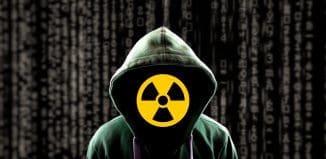Israel and Palestine’s status in the UN
This post is also available in:  עברית (Hebrew)
עברית (Hebrew)

The ICC’s Decision to Open a Preliminary Examination: Cause for Concern, not for Panic.
On January 16, 2015, Fatou Bensouda, prosecutor of the International Criminal Court (ICC), announced her decision to open a preliminary examination of the situation in “Palestine.” This followed the accession of “Palestine” to the Rome Statute (the treaty that regulates the establishment and activity of the court), and the declaration by “Palestine” accepting ICC jurisdiction over crimes allegedly carried out in “the occupied Palestinian territory, including East Jerusalem, since June 13, 2014.”
As early as 2009, when Operation Cast Lead ended, the Palestinian Authority (PA) turned to the ICC and requested that it investigate war crimes committed in its territories since July 2002. In 2012 this request was rejected by the previous ICC prosecutor, who explained that “Palestine” is not a state and therefore the court lacks jurisdiction over events that occurred there. According to the prosecutor, the authority to determine what defines a “state,” specifically “for the purpose of acceding to the Rome Statute” should be made by “the relevant bodies at the United Nations or the Assembly of State Parties.” However, Bensouda determined that in the wake of the UN General Assembly resolution of November 29, 2012 upgrading Palestine’s status in the UN to “non-member observer state,” “Palestine” can be seen as a state for the purpose of acceding to the Rome Statute and the purpose of ad hoc acceptance of jurisdiction. As such, the court has jurisdiction over crimes committed in its territory. The prosecutor did not engage in an in-depth analysis of this point, even though it is far from unequivocal from a legal point of view whether a political body such as the UN General Assembly has the mandate to decide whether an entity is a state for purposes of the Rome Statute.
According to ICC policy and practice, if a state that is not a party to the Rome Statute lodges a declaration accepting the jurisdiction of the court to investigate war crimes, and on the face of it there are initial grounds to suspect that such crimes took place, a preliminary examination will be conducted, unless it is a case that is clearly outside the jurisdiction of the court. Therefore, the fact that a preliminary examination was opened does not, in and of itself, indicate that the prosecutor believes that war crimes were committed. According to an official report by the office of the prosecutor, as of late 2014, some ten preliminary examinations were underway, including of British forces in Iraq and US forces in Afghanistan; Russian and Georgian forces regarding the conflict between them; operations connected to the conflict in Ukraine; and the situations in Nigeria, Guinea, Honduras, and Colombia.
Register to iHLS Israel Homeland Security
During 2014, there was also a preliminary examination of the Gaza flotilla incident from 2010, following a referral by the Union of the Comoros, under whose flag the Mavi Marmara sailed. At the end of the examination, it was decided not to investigate the incident, given the lack of sufficient gravity of the case. During the preliminary examination process, the prosecution examines questions of jurisdiction, admissibility, and the interests of justice. In the present case, it appears that the prosecutor’s position is that she has jurisdiction over the events, given the determination that they took place on the territory of a member state (Palestine). As part of the assessment of admissibility, an examination is conducted as to whether the acts are of sufficient gravity to justify an investigation. Presumably this requirement will be met, particularly given the comments regarding the Gaza flotilla decision, where it was implied that this requirement would have been met had it been possible to examine all the events that took place in the conflict between Israel and the Palestinians. The assessment of admissibility also addresses the principle of complementarity, whereby preference should be given to an investigation by state authorities as long as the investigation is genuine. As for the interests of “justice,” this is an examination as to whether there are substantial reasons to believe that an investigation will not serve the interests of justice, for example, if the investigation itself will worsen the situation of the victims. The consideration that an investigation could be an obstacle to promotion of a peace process could also play a certain role.
The preliminary examination does not include an independent investigation by the office of the prosecutor, but is based on information gathered from available sources, which include official bodies, non-governmental organizations, and any other element. The report of the Schabas Independent Commission of Inquiry on the 2014 Gaza Conflict, appointed by the UN Human Rights Council, will likely be consulted extensively during the examination. The preliminary examination is not bound by a specific timelines. The process could continue for a long time, and during this period there will be a dialogue between the office of the prosecutor and the relevant bodies, including relevant state authorities. Thus, for example, the examination of the situation in Georgia is addressing events that took place in 2008. Among the issues examined are the investigative procedures in the relevant states and their progress. At the end of the examination, the prosecutor must determine whether there is a “reasonable basis” to believe that crimes were committed and that the threshold conditions were met, and decide accordingly whether to open an investigation. The pre-trial chamber of the court will accompany the investigation. At the investigation stage, the pre-trial chamber is authorized to issue arrest warrants and summonses. Every country that is a member of the Rome Statute is obligated to honor these warrants and to arrest and extradite suspects who are in their territory. Currently, there are 123 member states (if “Palestine” is counted). They include almost all countries in Europe, all countries in South America, and more. Israel and the United States, as well as Russia, China, Turkey, India, and most countries in the Middle East are not members of the court. Presently, investigations of 21 cases involving eight situations are underway, relating to: Uganda, Congo, Sudan, the Central African Republic, Kenya, Libya, the Ivory Coast, and Mali. There is criticism of the fact that all the investigations are against African countries.
Written by: Pnina Sharvit Baruch



























